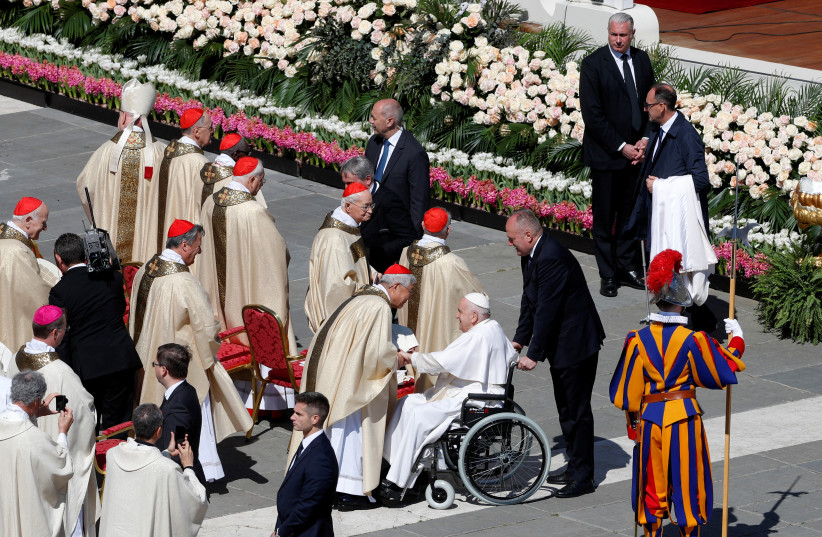The global Catholic Church is split on whether to allow women to serve as deacons, a Vatican document showed on Tuesday, just weeks after Pope Francis ruled out any opening on the issue.
Giving women a greater role in the male-dominated Church is one of the issues up for debate at a summit of bishops known as the Synod.
An initial, inconclusive session was held last year. On Tuesday, the Vatican released a working document due to inform discussions at a second and final session in October.
"While some local Churches call for women to be admitted to the diaconal ministry, others reiterate their opposition," it said.
Noting that women deacons will not be on the synod's agenda, it said "theological reflection (on the issue) should continue, on an appropriate timescale and in the appropriate ways".

Priestly celibacy - another contentious area for potential reform - was not mentioned, while the document said African bishops are studying "the theological and pastoral implications of polygamy for the Church in Africa."
The Symposium of Episcopal Conferences of Africa and Madagascar (SECAM) will report on these issues at the October meeting, Cardinal Mario Grech, Secretary General of the Synod of Bishops, told a press conference.
Full recognition for women
Deacons, like priests, are ordained ministers and, as in the priesthood, must be men in today's Church. Women deacons existed in early Christianity, but it is unclear what role they had.
Contemporary deacons may not celebrate Mass, but they may preach, teach in the name of the Church, baptise and conduct wedding, wake and funeral services and even run a parish.
The Vatican document stressed the need to "give fuller recognition" to women in the Church, saying that "by virtue of Baptism, they enjoy full equality".
In an interview with the "60 Minutes" programme of U.S. broadcaster CBS recorded in April and aired in May, Francis responded with a flat "no" when asked if he was open to women deacons.
But he added that women were often playing deacon-like roles, without formally having that title. "Women are of great service as women, not as ministers," he said.
Asked about the pope's remarks, Cardinal Grech said: "As of now, it is a 'no' (to women deacons), but at the same time the Holy Father has said that the theological reflection and study must continue. For me this is not a contradiction."
Known as "Instrumentum laboris", the document was presented after consultations with national bishops' conferences, theologians, Catholic institutions and associations from around the world.
Turning to another hot-button issue, the text did not include any specific references to LGBT people, but called for more inclusivity.
"A need emerges in all continents concerning people who, for different reasons, are or feel excluded or on the margins of the ecclesiastical community or who struggle to find full recognition of their dignity and gifts within it," it said.
It also acknowledged calls for greater transparency and accountability of Church leaders, and greater involvement of lay Catholics in Church affairs, including in response to sex abuse and financial scandals, and on pastoral matters.
